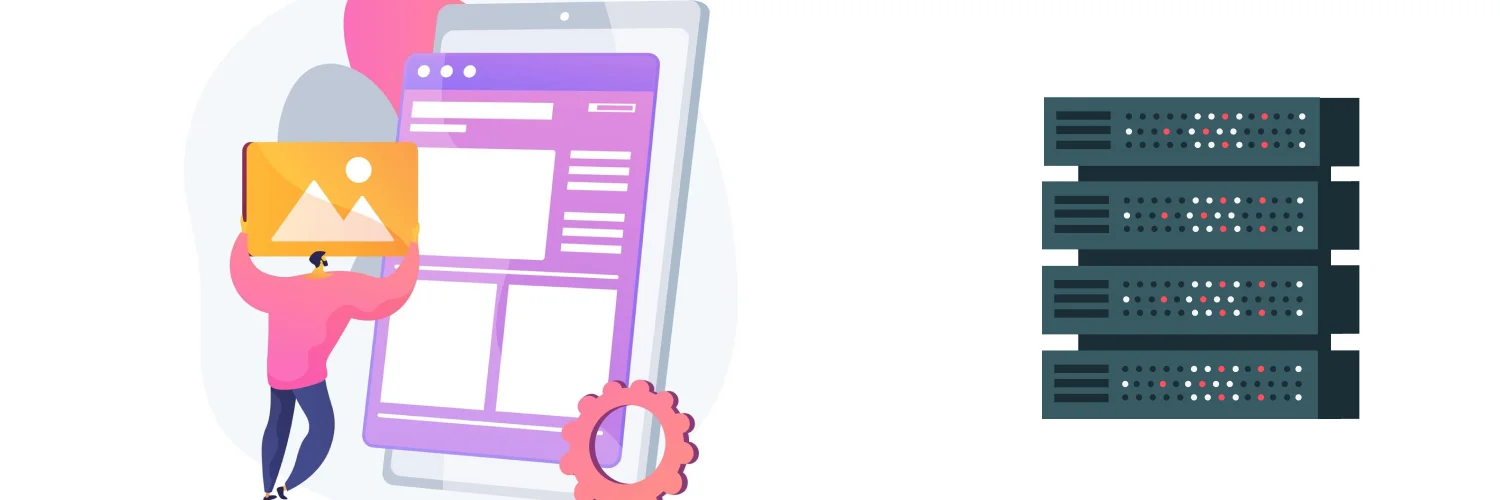How A Fake Proxy Can Give You Trouble (And How To Spot Them)
You are ready to browse anonymously or scrape some site data. So now, you’ve chosen a proxy, and you have even set up a bot. You log into the proxy, go to the site, and then…nothing happens. The proxy didn’t work. It turns out that you fell for a fake proxy.
Don’t be embarrassed. You’re definitely not the first person that has fallen for a fake proxy. Fortunately, these proxies have a few things in common that make them easy to spot. Once you know how to spot a fake proxy, you’ll never fall for one again. For some information on how to spot a fake proxy, use the table of contents below.
Table of Contents
What’s a Fake Proxy?

You might think that a fake proxy is just a dummy site that is set up for looks. It’s basically a placeholder that is just out there on the World Wide Web, attracting visitors for no reason at all. That’s actually not true. They do serve a sinister purpose. People set these proxies up for one of two reasons. They set them up to sell information to advertisers or to steal users’ identities. While both of these types of proxies are bad news, you hope you get the former. After all, you would rather have someone try to sell you something than steal your credit card information.
Let’s say you were using a proxy to cop some sneakers. You have a tiny window to get your sneakers before they are sold out. Now, you aren’t going to get to buy any limited-edition kicks with these proxies, so you can expect to feel the sting of disappointment if you try to use a fake sneaker proxy. This is becoming a more serious issue as more and more people are turning to sneaker proxies to buy shoes. The popularity of these proxies has opened the door up for fake proxies. People are so eager to buy shoes that they are willing to jump on the first proxy they see, even if that proxy puts them in harm’s way. They input their credit card information so the sneaker company can ship the shoes to their homes, and they don’t realize how easy it is for the free proxies to snag that information off the network and use it in any way they like. Worst of all, these networks are often set up under fake names, so if your identity gets stolen, you will have a difficult, if not impossible, time of catching the person who did it.
Basically, people who set these proxies up are often located halfway across the world, and you’ll never see or hear from them again. They aren’t going to get caught, and they know it, so they act as bold and brash as they want. There really aren’t any repercussions, so they keep doing what they’re doing and people keep falling for it. Now that you know what a fake proxy is, let’s see how you can spot one. That’s really the only way to fight back. The only way people can stop these proxies is to stop using them. If they stop handing over their money and information, the proxies will shut down. You have to stop feeding the beast or it will never go away.
Fake IP Addresses that Target Ads

Many free proxies run ads. If you’re waiting for your proxy to connect to a site and you notice that it’s running a lot of ads that are targeted directly to you, there’s a good chance that you’re on a fake proxy. The proxy owner likely used software to crawl your computer in order to find out what you like. Then, it ran ads directed right to you to increase the probability that you will click on them. If you do click on them, there is no telling what might happen. You might end up getting compromised even further.
You might be thinking, “But aren’t all ads targeted? Isn’t that what advertisers do?” This is different. These criminals use software to crawl your computer to find out exactly what you like in order to create highly targeted ads that are beyond the reach of legitimate advertisers. Let’s say, for instance, you’re a sports nut. You love the Dallas Cowboys. Your computer is full of everything related to the Dallas Cowboys. You decide you want to use a proxy to buy some sneakers, and while you’re waiting for it to connect, you see one Dallas Cowboys ad after the next. That would be normal if you lived in Dallas, but you live in Los Angeles. The ads are telling you to buy these Cowboys’ tickets and to get a great deal on this Cowboys’ shirt. That’s strange enough on its own, but you are on an anonymous proxy.
Your behavior shouldn’t be tracked, and all you’ve done on the proxy is going to this shoe site. The advertiser couldn’t possibly know that you are a Cowboys fan. Either the advertiser is the luckiest advertiser in the world and reads your mind, or it’s a scam. The advertiser is getting inside information from the proxy owner. If this happens, don’t click on the ads. Instead, disconnect from the proxy and take the settings out of your computer. Run an anti-virus and anti-malware program to be on the safe side. Don’t just run a quick scan, either. Run a deep analysis so the program can look through your root programs to see if you have a virus or spyware hidden somewhere. That is common with some of these hackers.
Fake IP Addresses Give Too Many Distractions

Along with ads that are targeted directly to you, you might notice that the proxy has a lot of distractions. A good proxy should just sit in the background and let you connect to the internet. Some fake proxies never have the intention of letting you get online, though. Instead, they just provide one distraction after the next so they can keep you busy while they attack your computer. If you notice a lot of distractions that don’t make sense, disconnect from the proxy immediately. It should not be difficult to connect to a proxy and buy shoes.
If a proxy makes it harder than it should be, it is likely for a reason. It’s an old school trick that these proxies use. They want you to look in one direction so they can do something in another direction. As long as you are looking over there, they can hijack your computer over here. This is a very dangerous game and one that has serious consequences. Some people lose quite a bit when they use these fake proxies. If you get involved with any of these proxies, stop using them as quickly as possible. It doesn’t take long for them to get inside of your computer, and once they are in, it’s hard to get them out.
Finding a Fake IP Address Using Keyword Stuffing

It shouldn’t come as a surprise that a lot of people go online and look for websites that offer sneaker proxies. The fraudsters are onto that, and because of that, they have cornered the market on the keywords. They build their sites around these keywords and then they watch the traffic pour in. Often, they have entire landing pages focused on one or two sneaker-related keywords. They might put the same keyword on pages 10 or 20 times, or in some cases, even more. If you hover your mouse over the keyword, they might show you some ads so they can make even more money. After all, every penny counts when you’re running a fake proxy. It’s pretty easy to spot these because the language is so unnatural. You can tell they are just trying to get web traffic.
When a site has something legitimate to offer, the site owner doesn’t feel the need to stuff the page with keywords. Instead, the owner lets the product do the talking. He or she uses a professional design and copy to sell the product. Keyword stuffers usually have fake products, so they just stuff the sites with keywords. As a rule of thumb, if the copy is stuffed with keywords, assume that it’s a fake proxy and move on to the next one. Many times, when the sites are stuffed with keywords, they’re also full of grammatical errors. That’s another good indication that you’re dealing with a fake proxy site. If you see a ton of errors on a site, it’s a good idea to back out of it and try your luck somewhere else. You don’t want to take the chance of using a fake site.
If All Else Fails, Test Potential Fake IP Addresses

You should never, under any circumstances, use a free proxy without testing it. You can do all of your homework, but until you test a free proxy, you can’t know if it is safe or not. Proxy Checker by Hascheck Solutions is a great way to check free proxies. Go to the site and enter the proxy’s information. Then, it will bring back a security report for the proxy. The report will detail the positive and negative security aspects of the proxy. If it has any negative security aspects, you shouldn’t use it. If you decide to test proxies with this tool, you are in for a headache if you don’t use a harvester first, though. With so many fake proxies out there, you will likely input a lot of proxy IP addresses for proxies that are already down. That will cause you to waste a lot of time with this tool. You can use a tool like No Hands Proxies to harvest proxies, and then use that list to input them into the tool. Then, you will know which ones out of the list are safe and which ones aren’t.
Reputable proxy hosts
The most surefire way to avoid fake proxies is to find a paid proxy service with a great reputation. Some fake services might try to show off fake reviews and testimonials, but these can be easy to spot. Many of these reviews will have the same or extremely similar wording or 5-star ratings with no reviews at all. The more reputable, the better. Faking a few dozen reviews is one thing, but hundreds or thousands is a harder feat.
Luckily, Rayobyte has worked hard to maintain an impressive reputation for quality proxies and outstanding service. We strive to keep our proxies fast, unthrottled, and extremely reliable. This includes providing maximum uptime and a service line available 24/7. When you are ready to get your hands on some of the best proxies around, take a look at the proxies from Rayobyte.
Final Thoughts
Go with a paid proxy instead of wasting all of your time researching free proxies. Rayobyte has paid proxies that are fast, reliable, and easy to use, so you don’t have to worry about a thing. Regardless of what company you use, it is important that you stay away from fake proxies. In a perfect world, these fake proxies would just be online placeholders, but that isn’t the case. Fake proxies are actually dangerous. They can steal your information and your identity, causing you a lot of problems. Do your homework before you go with a proxy. That can save you a lot of trouble in the future.
The information contained within this article, including information posted by official staff, guest-submitted material, message board postings, or other third-party material is presented solely for the purposes of education and furtherance of the knowledge of the reader. All trademarks used in this publication are hereby acknowledged as the property of their respective owners.



